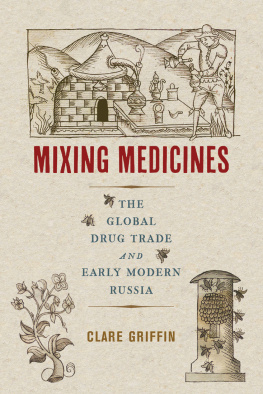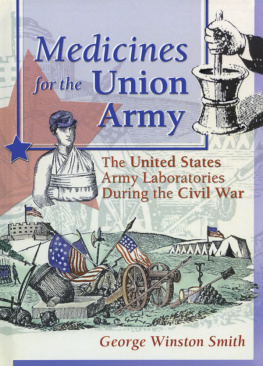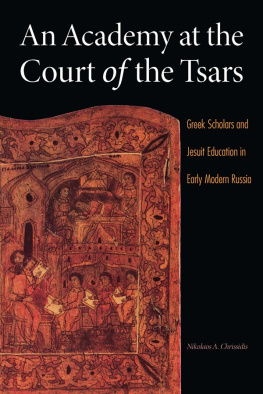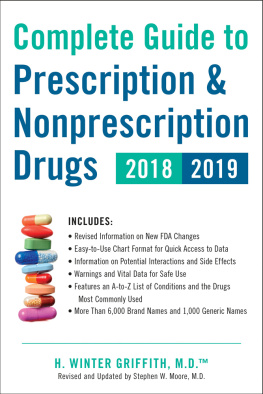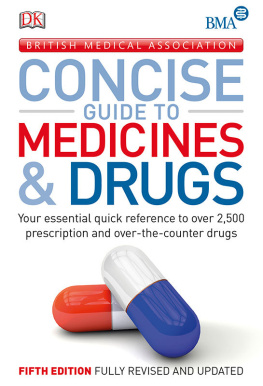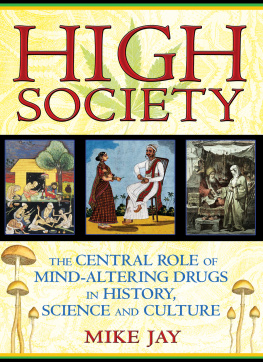Landmarks

mixing medicines
INTOXICATING HISTORIES
Series Editors: Virginia Berridge and Erika Dyck
Whether on the street, off the shelf, or over the pharmacy counter, interactions with drugs and alcohol are shaped by contested ideas about addiction, healing, pleasure, and vice and their social dimensions. Books in this series explore how people around the world have consumed, created, traded, and regulated psychoactive substances throughout history. The series connects research on legal and illegal drugs and alcohol with diverse areas of historical inquiry, including the histories of medicine, pharmacy, consumption, trade, law, social policy, and popular culture. Its reach is global and includes scholarship on all periods. Intoxicating Histories aims to link these different pasts as well as to inform the present by providing a firmer grasp on contemporary debates and policy issues. We welcome books, whether scholarly monographs or shorter texts for a broad audience focusing on a particular phenomenon or substance, that alter the state of knowledge.
Taming Cannabis
DrugsandEmpireinNine
teenth-CenturyFrance
David A. Guba, Jr
Cigarette Nation
Business, Health, andCanadian
Smokers, 19301975
Daniel J. Robinson
Remedicalising Cannabis
Science, Industry, andDrug
Policy
Suzanne Taylor
Mixing Medicines
TheGlobalDrugTradeand
EarlyModernRussia
Clare Griffin
Mixing Medicines
The Global Drug Trade and Early Modern Russia
clare griffin
McGill-Queens University Press
Montreal & Kingston London Chicago
McGill-Queens University Press 2022
ISBN 978-0-2280-1193-4 (cloth)
ISBN 978-0-2280-1194-1 (paper)
ISBN 978-0-2280-1283-2 (e PDF )
ISBN 978-0-2280-1284-9 (e PUB )
ISBN 978-0-2280-1476-8 ( OA )
Legal deposit third quarter 2022
Bibliothque nationale du Qubec
Printed in Canada on acid-free paper that is 100% ancient forest free
(100% post-consumer recycled), processed chlorine free
The open access edition of this book was funded by the Wellcome Trust.
Library and Archives Canada Cataloguing in Publication
Title: Mixing medicines : the global drug trade and early modern Russia / Clare Griffin.
Names: Griffin, Clare, author.
Series: Intoxicating histories ; 4.
Description: Series statement: Intoxicating histories ; 4 | Includes bibliographical references and index.
Identifiers: Canadiana (print) 2022019906x | Canadiana (ebook) 20220199108 | ISBN 9780228011941 (paper) | ISBN 9780228011934 (cloth) | ISBN 9780228012832 (e pdf ) | ISBN 9780228012849 (e pub ) | ISBN 9780228014768 ( oa )
Subjects: LCSH: Materia medicaRussiaHistory. | LCSH: DrugsRussia History.
Classification: LCc rs177.r9 g75 2022 | ddc 615.3/210947dc23
This book was typeset by True to Type in 11.5/14 Arno Pro
To Everyone Who Helped
,
Contents
Writing the acknowledgments is simultaneously the nicest and the scariest part of completing this book. This work would never have been finished without the patience and kindness of innumerable people. I can only hope I have remembered all of you and spoken of you as warmly as I feel.
This book has been greatly improved by the patient work of many hands. I thank my editor Kyla Madden, two anonymous peer reviewers, and everyone at McGill-Queens University Press, as well as Amberle Sherman, Audra Wolfe, Ramey Moore, and Oksana Vynnyk, all of whom did so much to make this book as good as it could be. Thanks also to the Eurasian Studies reading group at Nazarbayev University; Lauren Kassell and her Premodern Medicine reading group at Cambridge; Alisha Rankin, Jennifer Rampling, Lorraine Daston, and her group at the Max Planck Institute for the History of Science ( MPIWG ), Berlin; Christopher Nicholson; and everyone else who so kindly offered their thoughts on drafts of this book.
I am indebted to the staff of many libraries and archives, without whose expertise I would have been lost. The libraries and archives of Moscow are some of my favourite places in the world, and I have been lucky to work with many other wonderful collections as well. My thanks to the staff of the Nazarbayev University Library here in Nur-Sultan; the MPIWG library in Berlin; Stadsarchief Amsterdam; the National Library of Russia and Library of the Academy of Sciences in St Petersburg; and the Russian State Library and State Historical Museum in Moscow. Most of all, my very deepest thanks to the wonderful people and cats of the Russian State Archive of Ancient Documents, Moscow my home away from home for so many months for your patience and kindness in helping me find, copy, and understand the materials I rely upon in this book.
I am hugely grateful to the entirety of the School of Slavonic and East European Studies, University College London, my three-time alma mater, for keeping me around for so long, and in particular to Faith Wigzell, who was the first person to tell me I could be good at this; to my PhD supervisors Sergei Bogatyrev, Harold J. Cook, and Martyn Rady; and to my PhD examiners, the Simons Dixon and Franklin.
I have been lucky enough to have had wonderful colleagues along the way. Astanchane current and former Meiramgul Kussainova; David Moon; Zbig Wojnowski; my officemate Curtis Murphy and the rest of the HPRS team; Zhanar Jampeissova; and many other kind sobesedniki and excellent colleagues. During my time in Berlin I benefited from the kindness and insights of Lorraine Daston and Dagmar Schfer and the many lovely people in their departments, as well as the company of Tulsi Bhambry, Sabine Dumschat, Jacob Gaboury, Markham J. Geller and Florentina Badalanova-Geller, Alexei Evstratov and Kirill Ospovat, Hans-Uwe Lammel, and Lukas Macher. In Moscow I have enjoyed the hospitality and warmth of so many who were ready and willing to welcome the strange foreign lady, including Evgenii V. Akelev, Aleksandra B. Ippolitova, Sergei M. Kashtanov, Kirill S. Khudin, Juli Levickaja, Boris N. Morozov, Rem A. Simonov, Elena B. Smilianskaia, Andrei L. Toporkov, Andrei V. Topychkanov, Konstantin Yu. Jerusalimskii, and many others. I am grateful also to my fellow explorers of Muscovy from afar: Eve Levin; Valerie Kivelson; Matthew P. Romaniello; as well as Alison Smith and Tricia Starks, whom I will forever think of as honorary Muscovite historians; as well as to my other wonderful colleagues Sanjoy Bhattacharya, Anna Graber, Rachel Koroloff, Simon Werrett, Audra Yoder, and many more besides. Thanks also to my fellow explorers of the arcane roadways of the early modern drugs trade: Samir Boumedienne, Pratik Chakrabarti, Harun Kk, Carla Nappi, Valentina Pugliano, Emma Spary, Michael Stanley-Baker, Jan Willem Veluwenkamp, and Patrick Wallis. Your work has made mine better.
To my academic sisters Layla AbdelRahim, Soha Bayoumi, Katia Bowers, Emma Hagstrm-Molin, Eleanor Janega, Sydney Morrow, Aparna Nair, Lisa Onaga, and Jaya Remond, thank you for always understanding. To those wise enough to avoid the academic maelstrom, Charlotte Jones and Victoria Reynolds-OBrien, thank you for making the effort to understand what it possibly could be that I get up to. And to Erika L. Milam and Michael D. Gordin, tireless adopters of waifs and strays everywhere, I could never have done this without you.
This book was possible because of the support and funding of several institutions. I first began my voyage through the murky waters of the early modern medical drugs trade as a Wellcome Trust Research Fellow (grant no. 101554/Z/13/Z) at the Department of History and Philosophy of Science, University of Cambridge, then journeyed onwards to the Max Planck Institute for the History of Science, Berlin, to join Elaine Leongs Reading and Writing Nature in Early Modern Europe MPG Minerva Research Group, before making landfall at my present location, Nazarbayev University. I thank all these institutions and organizations for giving me the opportunity to undertake, and finally to finish, this work.

